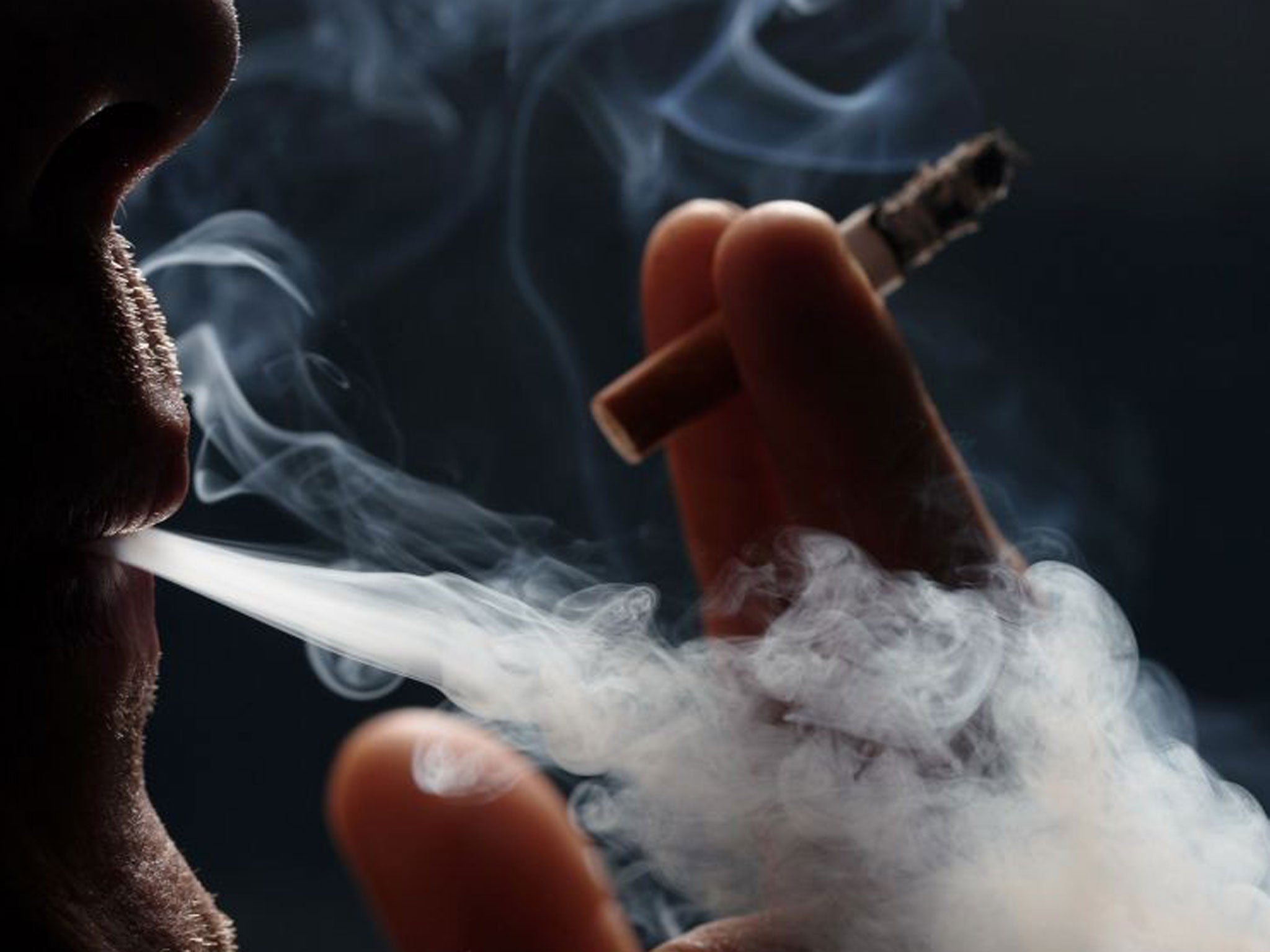Smokers' lungs used in half of transplants
Patients given the organs of 20-a-day donors are as likely as others to survive

Your support helps us to tell the story
From reproductive rights to climate change to Big Tech, The Independent is on the ground when the story is developing. Whether it's investigating the financials of Elon Musk's pro-Trump PAC or producing our latest documentary, 'The A Word', which shines a light on the American women fighting for reproductive rights, we know how important it is to parse out the facts from the messaging.
At such a critical moment in US history, we need reporters on the ground. Your donation allows us to keep sending journalists to speak to both sides of the story.
The Independent is trusted by Americans across the entire political spectrum. And unlike many other quality news outlets, we choose not to lock Americans out of our reporting and analysis with paywalls. We believe quality journalism should be available to everyone, paid for by those who can afford it.
Your support makes all the difference.Almost half of lung transplant patients were given the lungs taken from heavy smokers, with one in five coming from donors who had smoked at least one packet of cigarettes a day for 20 or more years.
Despite this, new research shows that those people given the lungs of smokers were just as likely to be alive up to three years after transplantation as those who had organs from non-smokers. In some cases, they had improved survival rates.
"Donor lungs from even heavy smokers may provide a valuable avenue for increasing donor organ availability," says André Simon, director of heart and lung transplantation and consultant cardiac surgeon at Royal Brompton and Harefield NHS Trust.
"Our findings provide for the first time real world figures for the perceived risk of implantation of lungs from donors with even a heavy smoking history, and they show that such donor lungs may provide a much-needed lease on life to the critically ill patient whose chances of survival diminish with every day or week that passes by on the waiting list.
"I believe that candidates significantly decrease their chances of survival if they choose to decline organs from smokers."
Lung transplantation is a life-saving therapy for patients with end-stage lung disease, but a shortage of organ donors means people are dying while waiting. UK Transplant Registry data show that only 20 per cent get transplants within six months. The figure rises to 51 per cent after three years, but by that time nearly one in three patients has died waiting for a transplant.
The demand for lung transplants, which are carried out for suitable patients with a number of diseases, including chronic obstructive pulmonary disease and cystic fibrosis, far outstrips demand. Using lung transplants from smokers is a way of boosting supply, but such use has attracted concerns and controversy because of a perceived risk to the health of the recipients.
The new research, conducted at Harefield Hospital in north-west London where Professor Sir Magdi Yacoub carried out the first UK heart and lung transplant in 1983, looked for any differences, including short-and medium-term survival, between patients given lungs from smokers and those who had organs from non-smokers.
Over a six-year period since 2007, a total of 237 lung transplants were carried out at Harefield, and 90 per cent were double-lung transplants. Just over half, 53 per cent, had lungs from non-smokers, while 29 per cent were from donors who had smoked for less than 20 years, and 18 per cent had the lungs of people who had smoked 20 or more a day for at least 20 years.
Results show that one-year and three-year survival figures were about the same for all three groups. Those with lungs from non-smokers even fared slightly worse in terms of one-year survival. A total of 77.7 per cent with non-smoking donors' lungs were alive after the first year, compared with 90.8 per cent with smokers' lungs. There were also no differences in a number of other measures, including overall effectiveness of the lungs, the amount of time spent in intensive care, and the length of time in hospital.
The researchers, reporting their findings in the Annals of Thoracic Surgery, say that while there is now considerable research on the ill effects on health of cigarette smoke, including lung cancer, there are differences between individuals. Smoking-related lung injury varies, they say. While some people have excessive lung damage, others carry on functioning despite several years of smoking.
Mr Simon said: "While it may seem strange that these lungs do not perform worse, or recipients of smokers' lungs don't show a higher incidence of lung cancer, it is important to note that one factor in this may be the cessation of smoking – from an organ point of view – at the time of transplantation and that all organs are inspected and assessed at the time of retrieval to ensure maximum quality and safety."
As a result of concerns about the use of smokers' lungs, more patients on transplant waiting lists are being involved in the decision about whether to accept donated organs.
"Possibly, potential recipients now have the option to decline lungs from donors with positive smoking histories, and choose to wait for organs from a non-smoking donor – presumably with fewer risk factors – in the hope of increasing their chances of post-transplantation survival," they say. "However, this choice would be made on the presumption that transplantation will occur before the patient dies on the waiting list or deteriorates to the extent that transplantation is no longer possible. It would also assume that the person's access to transplantation would not be affected by logistic constraints in the future."
Join our commenting forum
Join thought-provoking conversations, follow other Independent readers and see their replies
Comments